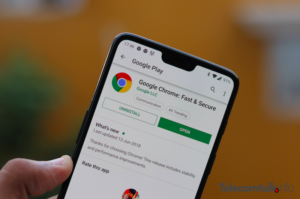The latest version of Google’s browser was in the works over the past few months and has just left the beta program.
Google has announced its newly-released Chrome 71, the latest version of its web browser, is now rolling out for Windows, Mac and Linux operating systems (OS), which aims to keep deceptive websites off. The latest version of Google’s browser was in the works over the past few months and has just left the beta programme. “The Chrome team is delighted to announce the promotion of Chrome 71 to the stable channel for Windows, Mac and Linux. This will roll out over the coming days/weeks.
“Chrome 71.0.3578.80 contains a number of fixes and improvements — a list of changes is available in the log. Watch out for upcoming Chrome and Chromium blog posts about new features and big efforts delivered in 71,” the tech giant wrote in a blog post late on Tuesday. In the new version, users would be warned when a site appears to be hiding the real costs and terms for a transaction.
 With Chrome 71, experiences on websites that fall under Google’s definition of abusive would be filtered. These include web experiences that are not just limited to ads, such as auto-redirects that happen without any action from a user or trick-to-click experiences like a warning notification that actually leads to an ad or another website’s landing page, according to The Verge.
With Chrome 71, experiences on websites that fall under Google’s definition of abusive would be filtered. These include web experiences that are not just limited to ads, such as auto-redirects that happen without any action from a user or trick-to-click experiences like a warning notification that actually leads to an ad or another website’s landing page, according to The Verge.Google previously disabled inline installations in Chrome 69, in September. The company’s engineers are now just finishing the API’s deprecation process by removing the actual code responsible for this feature. This is a necessary last step to prevent sites from exploiting Chrome bugs to initiate unauthorized inline installations.
But besides security improvements, Chrome 71 also shipped with many updates to the browser’s underlying Web APIs and CSS features. A summary of the most important changes are available below:
- Chrome now supports relative date formats by default, without site owners needing to use a third-party JavaScript library. The relative time format refers to dates expressed such as “4 seconds ago,” “today,” “two years ago,” etc..
- Chrome now supports Microsoft’s COLR/CPAL font format. This is the third “color font” format that Chrome will support, after CBDT/CBLC and SBIX. Color Fonts are a new way of creating and rendering vector-based interactive fonts.
- The Web Audio API now follows user-set audio autoplay settings. This means that when a user mutes a website, Chrome will actually respect the user’s wish. Google initially rolled out audio autoplay muting earlier this year, but engineers rolled back the change almost immediately because the new policy also broke many old sites . After giving developers time to adjust their sites and old web games, Google has now re-enabled that feature.






